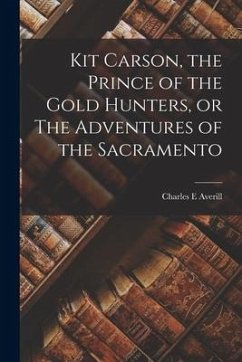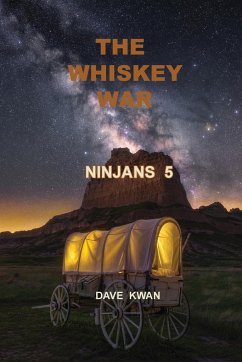
Beyond the Old Frontier, Adventures of Indian-Fighters, Hunters, and Fur-Traders
Versandkostenfrei!
Versandfertig in 1-2 Wochen
31,99 €
inkl. MwSt.

PAYBACK Punkte
16 °P sammeln!
PREFACE TO-DAY the vast territory lying between the Mississippi River and the Pacific Ocean is occupied by many millions of people. Fifty years ago, except on the Pacific slope, it had few white inhabitants. Then it was the Far West, beyond the frontier, the Indian country-the unknown. A journey into it was believed to be fuIl of peril. In the minds of the general public it was as far away as Central China is to-day. Beyond the great river which bounded it on the east was a fringe of settlements. Scattered through the more distant country were the trading-posts to which the trapper brought his...
PREFACE TO-DAY the vast territory lying between the Mississippi River and the Pacific Ocean is occupied by many millions of people. Fifty years ago, except on the Pacific slope, it had few white inhabitants. Then it was the Far West, beyond the frontier, the Indian country-the unknown. A journey into it was believed to be fuIl of peril. In the minds of the general public it was as far away as Central China is to-day. Beyond the great river which bounded it on the east was a fringe of settlements. Scattered through the more distant country were the trading-posts to which the trapper brought his furs. Forts Garry, Benton, Union, Laramie, Bridger, and Bent were some of these. There were a few army posts, and as time went on others were established. Gold had been discovered in California, and a wild rush of people anxious to better their condition had started across the pIains, bound for the distant Eldorado. It was a curiously mixed population that set out on this long journey. Farmers from New England, business men and clerks from the Middle States, pIanters and younger sons from the South on foot and on horseback, carrying their possessions, large or scanty, in vehicles drawn by horses, mules, oxen, and cows, they struggled westward. They endured enormous toils perpetually in fear of attacks by Indians, meeting the dangers, delays, and perplexities of wild men, strange surroundings, rough travelling, swollen streams, and exhausted live-stock. For many years the roads over which they had passed were marked by the skeletons of animals, by broken-down wagons, by furniture and househoId goods, thrown away to lighten the loads dragged by their feeble teams. Along these deep-worn roads were the graves of those who had perished on the way sometimes mere mounds of earth, hardly showing on the level prairie, or perhaps marked by a bit of board thrust in the ground, bearing a pencilIed name and date, which the winters storms would soon obliterate. Gold was discovered in the Rocky Mountains. The village of Denver was established, and along the mountain streams the prospector worked with pick and shovel and pan, and wore away his strength and his courage in hunting for the gold that often he did not find. Montana also began to yield gold, and Salmon River and Alder Gulch were at the beginnings of their fame. Steam-boat traffic on the upper Missouri River, at first established for the transportation of furs, gave easy access to the Montana mines. Stages were running across the continent, and the pony express had been established. Between 1853 and 1863 the plains and mountains of the West began to receive a sedentary population and to prepare for that startling development which began about a genera- tion later. To most people who now inhabit the Western country the struggles of those early years are still unknown.....












